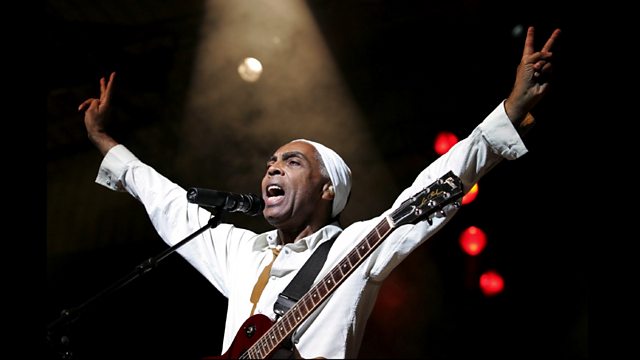Tropicália: the movement that defied Brazil’s dictatorship
The Tropicalistas blazed a trail in late 1960s Brazil with their provocative creations, upsetting both the military regime in power and the cultural scene.
Drawing on traditional music, pop culture, kitsch, rock and modernist poetry to mention just a few of their sources of inspiration, the short-lived Tropicália movement in late 1960s Brazil was provocative and anti-authoritarian. Perhaps most importantly it represented a uniquely Brazilian aesthetic that could only have emerged from that country’s specific culture and history.
The movement’s leading lights were eventually arrested by the military regime that governed Brazil at the time, and exiled to London. But Tropicália paved the way for other performers to demand artistic freedom.
With the help of musical examples, Rajan Datar and guests will explore what made Tropicália so disruptive.
Joining Rajan will be singer Mônica Vasçoncelos and guitarist Gui Tavares, social scientist Professor Liv Sovik from the Federal University of Rio de Janeiro, who’s published widely on Tropicália, including a collection of essays entitled Tropicália Rex: Popular music and Brazilian culture; and David Treece, Emeritus professor of Portuguese at King’s College, London, who’s written extensively on Brazilian popular music, including the book Brazilian Jive: From Samba to Bossa and Rap.
Produced by Fiona Clampin for the Â鶹ԼÅÄ World Service
(Image: Gilberto Gil in The Unique Concert at The Reunion in France. Credit: IMAZ PRESS/Gamma-Rapho via Getty Images)
Last on
More episodes
Broadcasts
- Thu 2 Mar 2023 10:06GMTÂ鶹ԼÅÄ World Service
- Fri 3 Mar 2023 00:06GMTÂ鶹ԼÅÄ World Service except South Asia
- Fri 3 Mar 2023 03:06GMTÂ鶹ԼÅÄ World Service South Asia
- Sun 5 Mar 2023 03:06GMTÂ鶹ԼÅÄ World Service East and Southern Africa & West and Central Africa only
- Sun 5 Mar 2023 14:06GMTÂ鶹ԼÅÄ World Service except East and Southern Africa & West and Central Africa
Podcast
-
![]()
The Forum
The programme that explains the present by exploring the past


